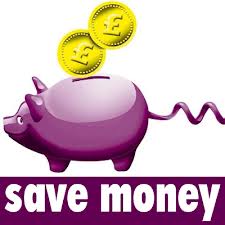
2. Consider all your options. Instead of purchasing something could you make it, get it used, fix something you already own, or do without? Could you use a less expensive alternative or a generic or house brand item?
3. Know what you want. Write things down while you're at home, where you'll most likely be using most of your purchases.
4. Research larger purchases. You don't have to study every loaf of bread, but if you're thinking of buying an appliance, an automobile, a computer, etc., it can be well worth your time to familiarize yourself.
5. Keep a list. If it's more than two items, write them down.
Writing things down while you're at home helps you not to forget them when you're at the store, thus saving you trips, time and money. This is especially true for day-to-day purchases.
Lists of larger purchases or potential can help you to distinguish between needs and wants, and to consider larger purchases more carefully before buying them.
A list can be a good place to leave things you're still considering. You may learn more about a particular item or decide you don't need it later on.
6. Know what a good price is.
For items that you buy routinely, such as groceries, watch the advertisements and know what good prices are and what very low sale prices are. You can keep a notebook with prices at different stores if it helps.
For items you purchase less frequently, do a price comparison. Call or shop around to a few different stores. Look online, too, but don't forget to figure in the extra costs of shipping and taxes.
7. Stick to the list. Stores go out of their way to put the basic items in the back so that you have to wander past prominently placed, colorful bargains. If you didn't need junk food, colorful sandals, or an extra 100-foot extension cord when you were at home, you don't need it in the store.
8. Stock up, but be selective about what you stock up on. Bulk pricing can get you a good deal, but if you end up with 25 pounds of flour and you never bake, it's not really a good deal. Buy in bulk if you use it, if it will last long enough for you to use it, if you have the space to store it, and if the price is really better than you'd get buying a more moderate quantity.
9. Consider bargains carefully. Is it really a good deal, or is somebody trying to up sell you or persuade you to buy something you don't need?
10. Learn to recognize a sales pitch and resist it.
11. Spend cash. Seeing yourself Part Company with your money, and parting company only with money you have, can often remind you to spend less. It can certainly help you keep from overextending yourself.
12. Think through the lifetime of your purchase. Will this purchase become clutter? Will you be able to go on using it for a long time? Can you do without it for now?
13. Remember that not all purchases are objects. A restaurant meal, a gym membership, and a monthly cell phone bill are all purchases you should evaluate carefully. Scrutinize anything with a monthly bill or monthly payment with special care, since a few dollars a month can quickly turn into many dollars per year.
14. Figure in all costs when considering a purchase. Include taxes, subscriptions, shipping, upkeep, and your own time to use or set up whatever you are purchasing.
15.Ask for a better price. Not all prices are negotiable, but it doesn't cost you anything to ask. Simply asking "Is this the best price you can offer?" can often bring the price down, but depending on the situation, you may want to haggle a bit.
 RSS Feed
RSS Feed